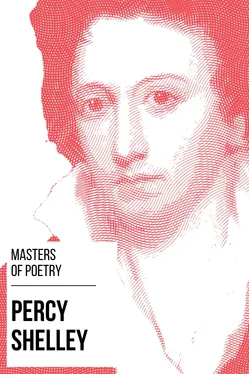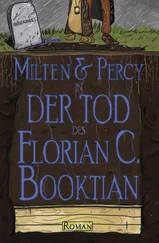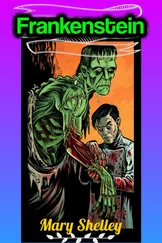By George Edward Woodberry 1
The natural charm by which Shelley fascinated his familiar friends lives after him, and has gathered about him for his defense a group of men whose affection for him seems no whit lessened because they never knew him face to face. The one common characteristic prominent in all who have written of him with sympathy, however meagre or valuable their individual contributions of praise, criticism, or information, is this sentiment of direct, intimate, intense personal loyalty which he has inspired in them to a degree rare, if not unparalleled, in literary annals. Under the impulse of this strong love, they have championed his cause, until his fame, overshadowed in his own generation by the vigorous worldliness of Byron, and slightly esteemed by nearly all of his craft, has grown world-wide. With the enthusiasts, however, who have aided in bringing about this result, admiration for Shelley's work is a secondary thing; its virtue is blended with and transfused into the nature of Shelley himself, who is the centre of their worship. To reveal the fineness and lustre of his character, his essential worth throughout that romantic and darkened career of thirty years, is their chief pleasure, and in this, too, they have now won some success, and have partially reversed the popular estimate of the poet as merely an immoral atheist; yet, although some amends have been made for harsh contemporary criticism, Shelley's name is still for orthodoxy a shibboleth of pious terror and of insult to God. It is still too early to decide whether the modification of the harsh criticism once almost universally bestowed upon Shelley will go on permanently, or whether it is not in some measure due to peculiar results of culture in our own time. Without attempting to prejudge this question, especially in regard to poetic fame, there seems to be, as the cause passes out of the hands of those who knew Shelley personally into the guardianship of the new generation, a tendency toward greater unity of judgment in regard to the larger phases of his character and conduct.
Shelley, as Swinburne said of William Blake, was born into the church of rebels; he was born, also, gentle, loving, and fearless. The dangers to which such a natural endowment would inevitably expose him were aggravated by a misguided education, and by the temper of that feverish and ill-regulated age in which modern reform began. He was in early years first of all a revolter; he would do only what seemed to him best, and in the way which seemed to him best; he took nothing upon authority, he acknowledged no validity in the customs and beliefs which past experience had bequeathed to men; he must examine every conclusion anew, and accept or reject it by the light of his own limited thought and observation; he carried the Protestant spirit to its ultimate extreme all legal and intellectual results embodied in institutions or in accepted beliefs must show cause to him why they should exist. He was, moreover, in haste; he could not rest in a doubt, he could not suspend his judgment, he could not wait for fuller knowledge. Finding only incomplete or incompetent answers to his questioning, he leaped to the conclusion that there was no answer. Had he been contented with allowing this spirit to influence only his own private creed and conduct, mischief enough was sure to be wrought for him, error and suffering were in store for him in no common degree. But he was not merely building an ideal of life and formulating a rule of living for himself; he had, as he afterward confessed, a passion for reforming the world. He was early in print, and aspired to teach the world before he was well out of his teens,—took in his hands, indeed, the regeneration of Ireland through pamphlets, and public eloquence, and personal agitation and supervision. It is easy to dismiss this as the foolish conceit of a boy of talent much given to dreaming. It is easy, too, to dismiss his exile from his home and his expulsion from Oxford as childish obstinacy, disobedience, ingratitude, and presumption; but if there was anything of these faults in him there was also much more made evident in these first trials of his character: there was the capacity for sacrifice, the resolution to be faithful to the truth as he saw it. The beginning of manhood found him in the full sway of immature conviction, and already suffering the penalty. It is not necessary to follow out in detail the development of a life so entered upon. It led him to attack Christianity and to disregard the law of marriage, and this is the sum and substance of his offense. Yet no sign, perhaps, is so indicative of the increased liberality of religion in our time as the attempt which has been made to show that Shelley was essentially Christian, an attempt so common and vigorous that Trelawney felt called upon to protest against it. In this spirit Mr. Symonds writes from one extreme: "It is certain that as Christianity passes beyond its mediæval phase, and casts aside the husk of outworn dogmas, it will more and more approximate to Shelley's exposition. Here, and here only, is a vital faith adapted to the conditions of modern thought, indestructible because essential, and fitted to unite instead of separating minds of divers quality"; and Rev. F. W. Robertson, from the other extreme, writes: "I cannot help feeling that there was a spirit in poor Shelley's mind which might have assimilated with the spirit of his Redeemer, nay, which I will dare to say was kindred with that spirit, if only his Redeemer had been differently imaged to him.... I will not say that a man who by his opposition to God means opposition to a demon, to whom the name of God in his mind is appended, is an enemy of God;... change the name and I will bid that character defiance with you!" A candid examination must show, however, that Trelawney is right; there is no doubt that Shelley rejected altogether what is properly known as Christianity, in youth violently and with hatred, while in later years he came to care less about it. At the same time it is to be remembered that he had seen Christianity only in those forms whose most prominent characteristic is defect in charity and love, which Shelley believed to be the central virtues. Probably he never dissociated the Christian God from the Jewish Jehovah, and his feeling towards him is well illustrated in the terrible indictment he makes against him in reference to Milton's delineation of Satan as one "who, in the cold security of undoubted triumph, inflicts upon his fallen enemy the most horrible punishment, not from any mistaken hope of thereby reforming him, but with the avowed purpose of exasperating him to deserve new torments." It is, therefore, impossible to deny Shelley's atheism; the most that can be contended for is that in natural piety, in purity of life and motive, in conscientious and unselfish action, Shelley was exceptionally conspicuous.
It is here that the second charge against Shelley has its place. How, it is indignantly asked, was he unselfish, loving, and conscientious, when he left his youthful wife to circumstances which resulted in her suicide, and transferred his devotion to another? Nothing more can be done than to point out the fact that Shelley acted in harmony with his convictions of social duty; that the first marriage was the result of knight-errantry rather than affection, and had become destitute of any pleasure; that Shelley did not desert his wife in such a way as to make her suicide chargeable to him. These considerations do not, it is true, relieve him of condemnation, or remove the really great defect in his moral perception of the responsibility which rested upon him in consequence of a thoughtless and foolish marriage. Yet it is not doubtful that in his life he atoned for his error, if suffering is atonement; from that time a shadow fell upon him which never was removed. It is hard to find heart for reproach when one, whose whole gospel was love, is so cruelly entangled in the unforeseen consequences of his acts that he seems to have wrought the work of hatred.
Читать дальше












